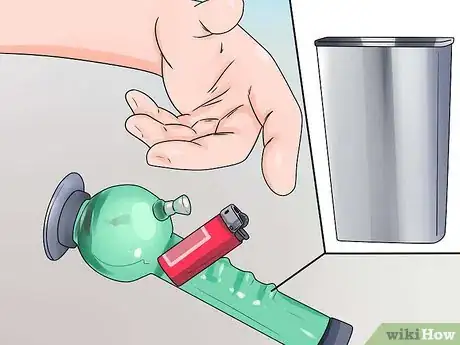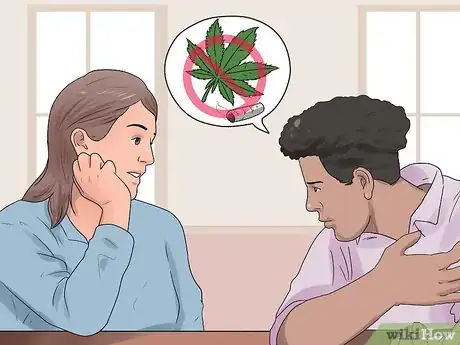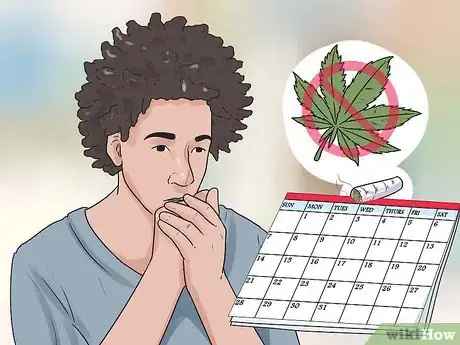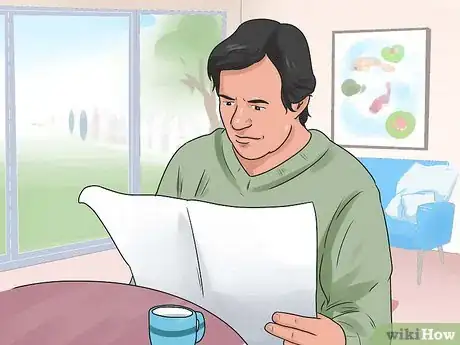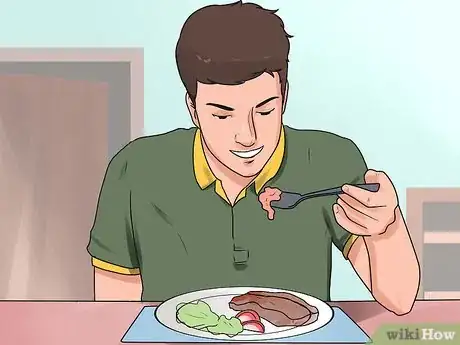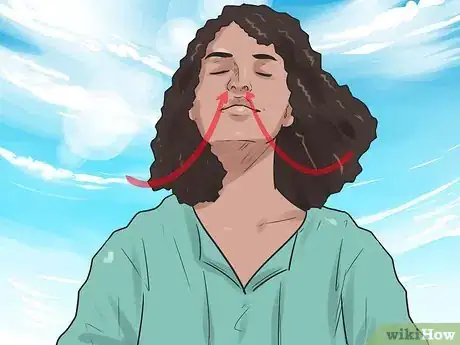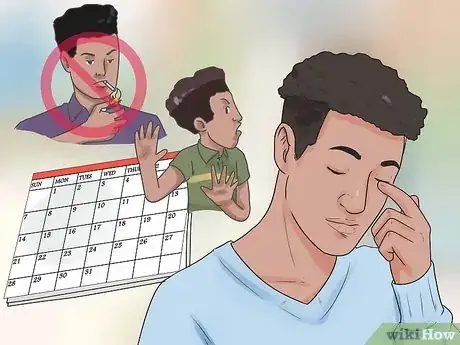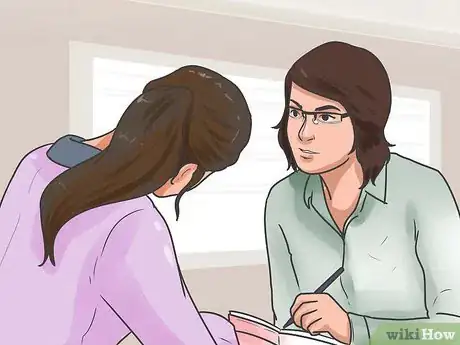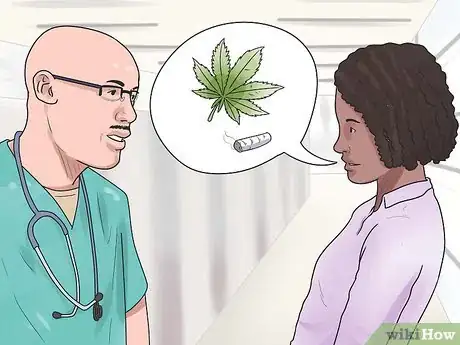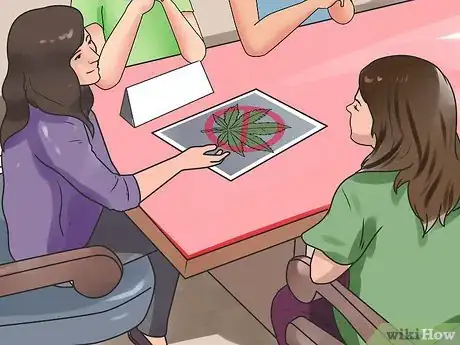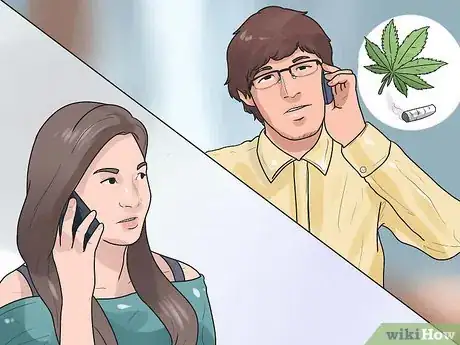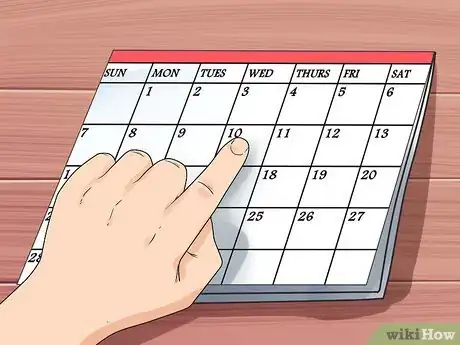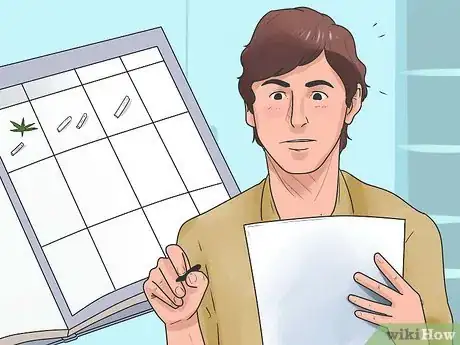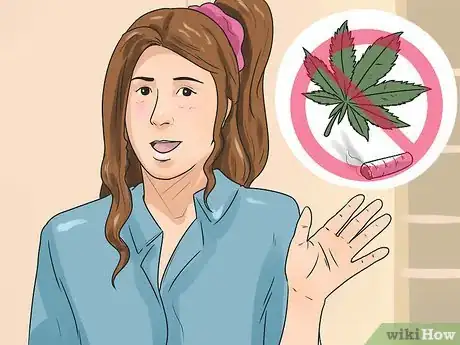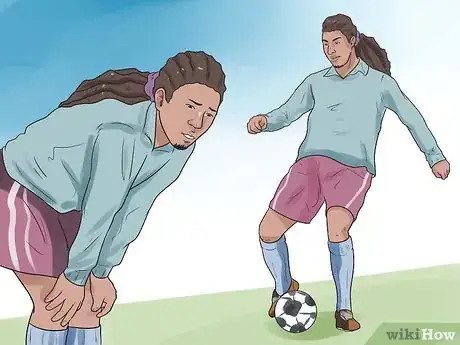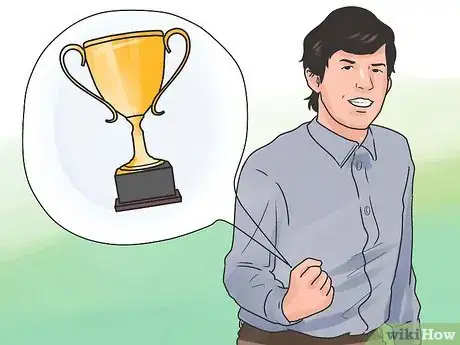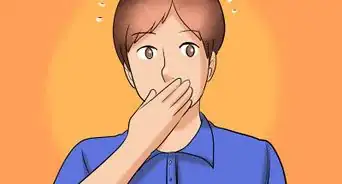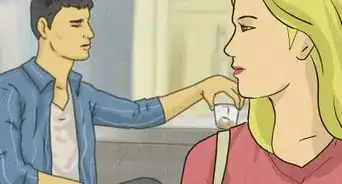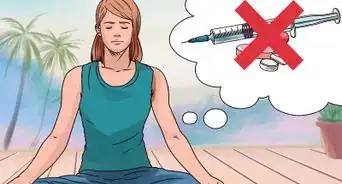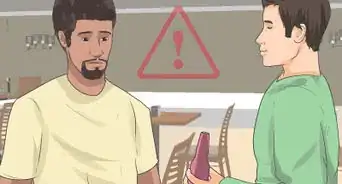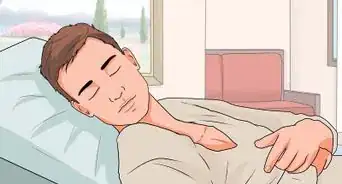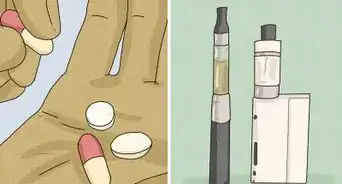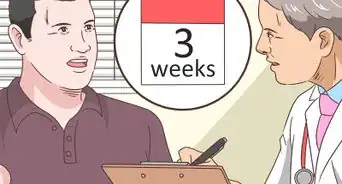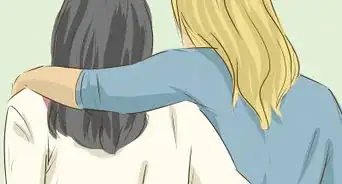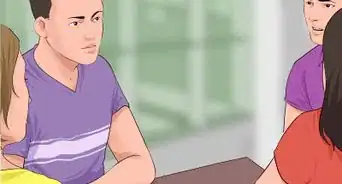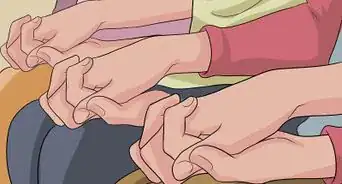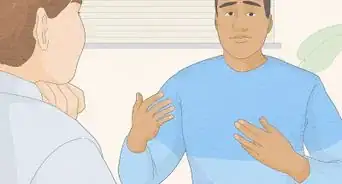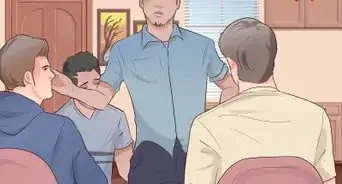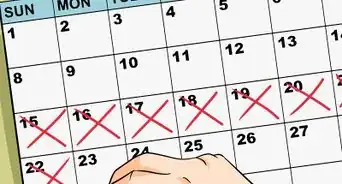This article was co-authored by Natalie Feinblatt, PsyD. Dr. Natalie Feinblatt is a Clinical Psychologist with a private practice based in Los Angeles, California. With over 15 years of experience, Dr. Feinblatt specializes in helping people with addiction, trauma, and other mental health struggles. She holds a BA in Psychology from The University of California, San Diego, and a Master’s degree and Doctor of Psychology (PsyD) from Pepperdine University. Dr. Feinblatt is licensed in the state of California.
There are 8 references cited in this article, which can be found at the bottom of the page.
wikiHow marks an article as reader-approved once it receives enough positive feedback. This article received 62 testimonials and 95% of readers who voted found it helpful, earning it our reader-approved status.
This article has been viewed 477,919 times.
If you feel that marijuana is taking over your life and replacing all of your friends, hobbies, and favorite ways to pass the time, then it's time to quit smoking and get your life back on track. Marijuana may be psychologically addictive, which means that you need to be mentally prepared and willing to give up your habit. So if you're looking for help for getting your old life back and dropping your old habits, you've come to the right place.
Steps
Quitting Cold-Turkey
-
1Throw out all your pot and your smoking paraphernalia. If you remove the things that make it easy for you to start smoking again, you might be less likely to give in to your cravings. Here's what you should do:[1]
- Get rid of any lighters, matches, roach clips, bongs, or containers. Empty out all of your pockets to make sure you didn't miss anything.
- Flush any remaining weed down the toilet, so you can't simply dig it out of the trash later.
- Destroy all of your supplies. Or, if you can't render them useless, throw them into a disgusting dumpster so you're not tempted to climb in and get them. (You might want to wrap them in a discreet trash bag first, though.)
- Get rid of anything that even makes you want to smoke pot, whether it's your favorite video game or a poster in your room. This may sound extreme, but removing your triggers can help you beat your habit.
- If you have a dealer, take his number and other contact information out of your phone.
-
2Make your decision clear to your support system. Tell trustworthy friends and family members what you're doing, and ask for their support in quitting. You'll probably find that they're thrilled to see you quit and support you however they can.[2]
- This is especially important if you want to remain close to people who are active smokers. Tell them that you're not trying to get them to quit, but you'd appreciate it if they don't pressure you into using. If you get no support from anyone or if they try to get you to "join in", consider whether that person really belongs in your life if he/she can't respect your choices and requests.
- You may even have to avoid the friends that you smoke with for a while. If your entire social life with your friends consisted of getting high together, then you'll have to find a new social network.[3] This may sound harsh, but that's the way it goes.
- It's easy to worry about what people might think if you say no when they offer you a substance, but odds are they won't care if you say "no." Just say, "No thanks, I'm having a good time" or "Hey, I'm trying to stay sober."[4]
Advertisement -
3Prepare for withdrawal. The good news is it's temporary: marijuana withdrawal begins 1 day after you quit cold turkey, hits a peak after 2 or 3 days, and eventually levels off after 1 or 2 weeks. You might not experience any or all of them, but it's important to have a plan in place for what you'll do about them instead of going back to pot. The bad news is, there are symptoms. Here are some of the symptoms you may experience:[5]
- Sleeplessness: Try to avoid caffeine for the first few days, and hit the hay as soon as you're tired in the evening.
- Decreased appetite: You might feel nauseated at first. Try to eat bland foods that are easy on the stomach, such as bananas, rice, toast, oatmeal and apples.
- Irritability: As you experience the mood swings that accompany withdrawal, you might find yourself quick to anger or prone to crying. Plan for these ahead of time, and when they happen try to take a step back and acknowledge what's happening. Tell yourself, "This isn't me, and this isn't the situation. It's the withdrawal." Repeat it as often as you need to.
- Anxiety: Feeling on-edge or generally out of sorts is a common symptom of withdrawal that can come with quitting any drug. When you have a spare minute, close your eyes, breathe deeply, and remember that withdrawal is only temporary.
- Increased body temperature: you may feel hotter than normal and may start sweating from time to time.
-
4Find a replacement activity. Instead of using, devote your new free time to a hobby or sport. Try to make it something you can do as quickly and easily as lighting up — such as playing guitar or going for a run — and turn to it whenever you're tempted. If you're feeling too bored or depressed to do this, watch a movie that makes you smile or spend some time with a good friend who is not a user. Here are some other things to try:[6]
- Taking long walks
- Talking to an old friend on the phone
- Swimming
- Cooking
- Reading. For example, newspapers, light novels, comic books, adventure stories, juicy biographies.
-
5Change your routine. In addition to finding a new hobby, you should switch up your routine so that you don't start missing pot so badly during the time that you usually spent getting high. Here are some things you can do:[7]
- Change your morning routine. Try getting up a little earlier or later, having something different for breakfast, or showering at a different time.
- Change your work or school routine. Go to work or school by a different route, sit in a different seat if you can, and eat something different for lunch.
- Change your study routine. If you normally study in your bedroom (which leads to smoking pot), mix it up and study at a coffee shop or a library.
- Don't start eating less just to change up your routine, though. You may find that you're less hungry, but you should try to eat the same amount to stay healthy.
-
6Manage your urges. You will have an urge, or a craving to smoke, pretty often, and it's important to know how to react to these if you really want to quit. Here are some things you can do to avoid giving in to the craving for pot:
- Avoid your trigger locations. Don't go to the places that make you want to smoke, whether its your friend's basement or the sop under your high school bleachers.
- Flee the scene. Wherever you find yourself when you get an urge, get out as soon as you can. Changing your environment as quickly as you can is your best bet.
- Breathe deeply. Take a deep breath through your mouth and hold the air in your lungs for 5-7 seconds until you feel more calm. Breathe it out through puckered lips, and repeat these steps until the feeling passes.
- Put something else in your mouth. Finding a substitute for your craving -- as long as it's not alcohol or another drug -- can help curb it. Try sugarless gum, sugarless candy, a diet drink, toothpicks, a pen or pencil, or even a straw.
- Drink water. Staying hydrated will keep you healthy and will help you battle your urges.
-
7Stick with it. The worst of the withdrawal should be over in a week or two, and we've all heard that saying about how it takes three weeks to make or break a habit. By the time a month's passed, urges should be much less frequent. It might seem like an eternity while you're dealing with it, but try to remember that it's not that long.
- Plan a small celebration a month from your quit date. Having a milestone to look forward to can help you stay on-track, and you can use it as an excuse for a small reward like a night out or a present to yourself.
Seeking Professional Help
-
1Visit a psychiatrist for pharmacological help. A medical doctor (MD) or doctor of osteopathy (DO) can prescribe medications designed to help you ease off of marijuana. If you've tried to quit cold turkey or to quit gradually, or even if you just know that there's no way you can do it on your own, seeing a doctor may be your best bet.[8]
- Even if you are unsure about quitting smoking weed, just make an appointment. One good start would be to find outpatient addiction services. Never let the cost of psychological care stop you from seeking treatment. There are outpatient rehabilitation groups that are less expensive than seeing an individual addiction counselor. Relapse is common. If you try outpatient services and you are still getting high, talk to your counselor about in patient addiction treatment.
-
2See a therapist. If there are underlying issues that are driving your marijuana use — such as depression or anxiety — talking them through with a professional could help you quit. If possible, try to find someone who specializes in addiction issues.[9]
- Look at different modalities. There are several modalities, or types of therapy, that might be appropriate for pot addiction. Talk therapy is the most common kind, but you might also investigate cognitive-behavioral therapy.
-
3Join a support group. If you're having a hard time quitting on your own because of peer pressure or a lack of confidence, a support group might be the answer for you.[10]
- Marijuana Anonymous and Narcotics Anonymous is in several countries, and provides free membership and meetings. Search online for groups in your area.
-
4Check into inpatient rehab. If nothing else has worked and your marijuana addiction is seriously endangering your health and happiness, you might need the help that inpatient rehab offers. Its like a vacation with the purpose of rebuilding, re-imagining, and redefining your life. Some people only go to inpatient treatment one time and never return to smoking. Other people need a little more love and go to inpatient multiple times. Never deny yourself treatment. Always seek help and work out costs later.[11]
- Exhaust all your other options first. Rehab is difficult and expensive, and not something you should enter lightly. If you are truly out of choices, though, it might be the best thing.
- Find out how many inpatient days your insurance company will cover.
Quitting Gradually
-
1Set a date for when you want to be completely pot-free. Scheduling it somewhere between two weeks and a month out should make it close enough that you don't lose sight of it, but not so close that tapering off feels impossible. If you think this is really unrealistic, you can give yourself a few months to really quit. If pot has really become a major fixture in your life, it will be hard to just give it up after a few weeks.[12]
-
2Establish a tapering plan. Plot out how much you'll use between now and your quit date. Try to make it a linear process — for example, at the halfway point between today and the quit date, you should be using half as much as you are now.[13]
- Put your plan on a calendar, marking how much you'll use for every day, and stick to it. Put the calendar in a place where you have to look at it every day, like next to the bathroom mirror or on the refrigerator.
-
3Portion out your pot ahead of time. Instead of relying on yourself in the moment to only take what's in your tapering plan, set up your portions ahead of time. That way you don't have to think about it — you just take what you've promised yourself you will. Just like taking your medication.
-
4Stay busy. As your pot use tapers down and you're spending less time using, find activities to do immediately after you smoke. Transition straight from that to doing another hobby or sport you enjoy, so that you don't have time to notice the difference. Though you should still make time to be alone and relax, try to keep your day filled with hobbies, social activities, schoolwork, or anything else that can keep you focused on something other than smoking pot.
- Take a look at your schedule and try to fill it with as many social engagements and activities as you can without feeling overwhelmed.
-
5Stay motivated. If you really want to quit, then you have to keep your eyes on the prize. Remind yourself why you want to quit, whether it's to improve your health, your thinking, your social life, or your overall perspective on life, and stay focused on that goal like a laser. Write it down and tape it above your desk, keep an index card with your motives in your pocket, or just keep your goals in an accessible place that you can easily reach whenever you're losing steam.
- Whenever you're having a moment of weakness, consider all of the things you can do once you stop smoking for good. You'll feel more active, more energetic, and more motivated to do all of the things you want to do.
Warnings
- Limit contact and time spent around people who continue to indulge. Even though they may be your friends, peer pressure is often a major issue with quitting cannabis.⧼thumbs_response⧽
References
- ↑ https://americanaddictioncenters.org/marijuana-rehab/how-to-quit-smoking-weed
- ↑ https://americanaddictioncenters.org/marijuana-rehab/how-to-quit-smoking-weed
- ↑ Natalie Feinblatt, PsyD. Clinical Psychologist. Expert Interview. 30 July 2021.
- ↑ Natalie Feinblatt, PsyD. Clinical Psychologist. Expert Interview. 30 July 2021.
- ↑ http://www.drugabuse.gov/publications/drugfacts/marijuana
- ↑ https://www.self.com/story/7-things-that-can-make-it-easier-to-quit-smoking-cold-turkey
- ↑ https://americanaddictioncenters.org/marijuana-rehab/how-to-quit-smoking-weed
- ↑ https://www.northpointwashington.com/blog/is-it-ok-to-quit-smoking-weed-cold-turkey/
- ↑ https://www.self.com/story/7-things-that-can-make-it-easier-to-quit-smoking-cold-turkey
About This Article
While it can be difficult to stop smoking weed, with a little effort and support from your friends and family, you can do it! To go cold turkey, throw out all of your pot and paraphernalia so you aren’t tempted to start smoking again. This includes any lighters, matches, roach clips, and bongs that you own. Once you’ve cleared out your stash, tell trustworthy friends and family members about your plan to quit so they can hold you accountable. If they smoke themselves, you might ask them to not smoke in front of you, since you may be tempted to join in. After you quit, try finding a replacement activity to keep your mind off weed. For example, you could go for long walks, talk to friends on the phone, or start cooking. To learn how to manage your urges to smoke after you quit, read on!
